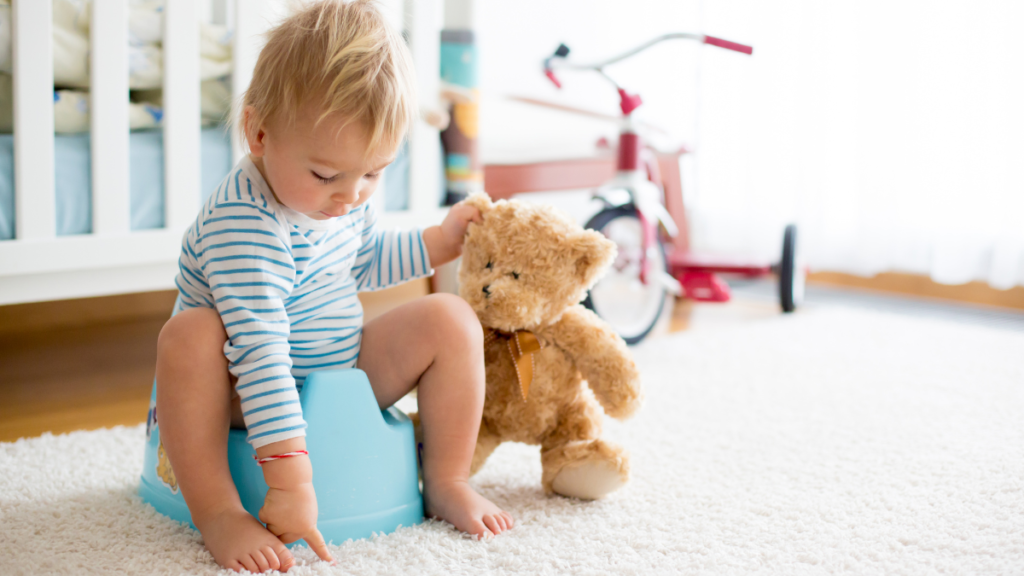
Children during the toddler years are making developmental leaps in language and motor skills. At 18 months, some toddlers are just getting comfortable walking while others are running. When a parent is wanting to initiate toilet learning before the age of two it is important to assess the child’s level of readiness.
I use the nine signs of readiness to help guide parents and set up kids for success. There are some physical signs that a toddler needs to meet: basic needs (sleep and feeding), confident walker, and poo is mushy and easy to pass. There are communication signs for a toddler that can help tell us if they are ready. The toddler needs to be able to protest, receptive language is developed, and communicating when they have pee or poo. A toddler also needs to be understand routines, copies parents in everyday scenarios and has a pattern to their eliminations. No matter how advanced a toddler is in their development, the level of parental involvement with early toilet learning is intensive.
Another consideration with a child under two is not only their nine signs of readiness but the parents’ level of readiness. A child under the age of two will take on average 13-14 months to complete training while an older child takes an average of 10 months to completion. That is a lot of work! An advanced 18-month-old toddler who is ahead for motor and communication skills can still be very much behind an average three-year-old in development. A parent will need to be committed to assisting with the child’s physical and behavioral aspects of toilet learning until the child can become independent.
There are possible side effects to training a child under the age of two which are a higher risk of chronic constipation and enuresis (pee accidents). When a child ignores their urges to pee or poo it can lead to these side effects. And we all know how busy a toddler can be when learning and playing. Your toddler is going to need prompting and a routine to potty to combat the issues of holding pee. A key to helping with poo holding is ensuring a child is not constipated. Teaching a child to recognize their body’s signs of poo and consistently having them slow down to poo are key to avoiding a cycle of poo holding.
Knowledge is power so if you are starting your potty training early I would have you consider these three things:
· Child’s nine signs of readiness
· The length of potty training for this age
· The level of involvement from the caregiver
So, if you have a young toddler and they are hitting these signs of readiness, I am sending you support and love because trust me the road is long. Your child may be ready, but are you?
© 2023 All rights reserved Baby & Toddler - part of parent promotions